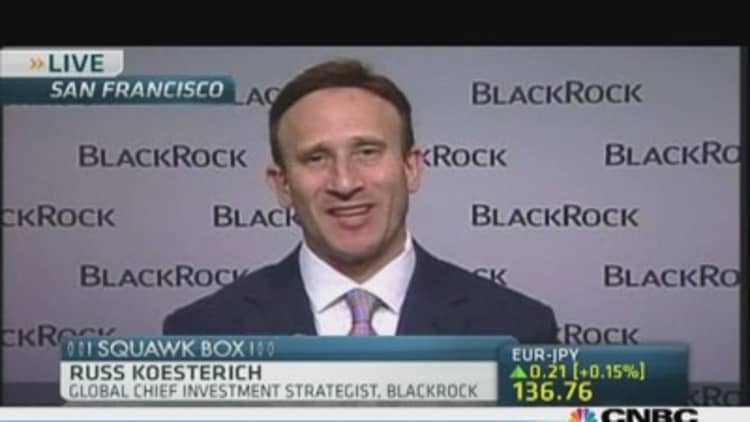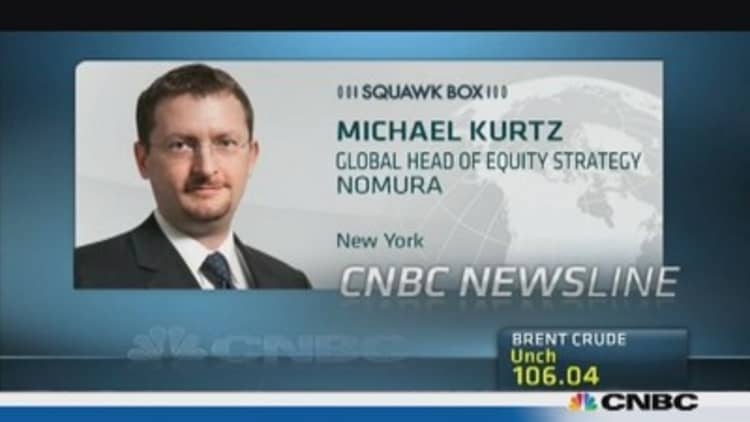
The emerging market selloff has left many wondering whether it's time to bottom fish or if they should just toss the small fry back.
By any measure, emerging markets have had a bad month, with investors pulling around $12.2 billion out of emerging market equity funds in January, according to EPFR data.
But the market drops have also left shares at what could be attractive valuations—if worries ranging from some countries' high current account deficits and slowing growth in China don't presage a full-blown crisis, similar to 1997's contagion across emerging markets.
(Read more: What happens in EM stays there, mostly: Goldman)
"There are some problem children and there are some instances where you do have some serious concerns, such as Turkey," Russ Koesterich, global chief investment strategist at BlackRock, told CNBC. "But by and large, EM looks better: Less dollar-denominated debt, higher foreign exchange reserves," he said.
"It can always get worse but I would take issue with the notion that it has not been fully discounted," he added. "There's already been a very significant correction in emerging markets relative to developed markets," with emerging market equities trading at a 40 percent discount to their developed market peers.
"That is the single largest discount we've seen since the financial crisis. So I would argue that a lot bad news already appears reflected in the price," Koesterich said.
(Read more: The 3 culprits behind the emerging markets rout)
Others think the view is more complex than a simple value equation.
"Emerging markets do offer a bit of value relative to developed markets now," with fund outflows bringing shares to levels that have historically suggested emerging markets can outperform developed markets on a 12-month horizon, Michael Kurtz, global head of equity strategy at Nomura, told CNBC.

"But we also see evidence that there's been something of a secular decline in terms of both the GDP (gross domestic product) growth advantage that the emerging markets have been delivering over the developed markets over the past 10 to 15 years," Kurtz said, adding emerging markets have also seen their earnings growth advantage erode.
(Read more: Why you don't need to cry over Argentina)
If emerging markets are facing a secular slowdown, then investors may not be able to capture the shares' "cheapness," he said.
He believes investors need to start differentiating the segment on a country-by-country basis.
Some think the time just isn't yet right to pounce on the selloff.
"EM assets are in cheap territory," Gary Dugan, chief investment officer for Asia and the Middle East at private bank Coutts, said in a note. "However, we accept that markets may get cheaper before they bottom out."
(Read more: Why pros are dismissing the emerging market crisis)
Coutts is keeping a neutral view on emerging markets while waiting for a deeper selloff. "The recent volatility argues for even greater patience and waiting for more serious downside or capitulation before buying."
—By CNBC's Leslie Shaffer. Follow her on Twitter @LeslieShaffer1

